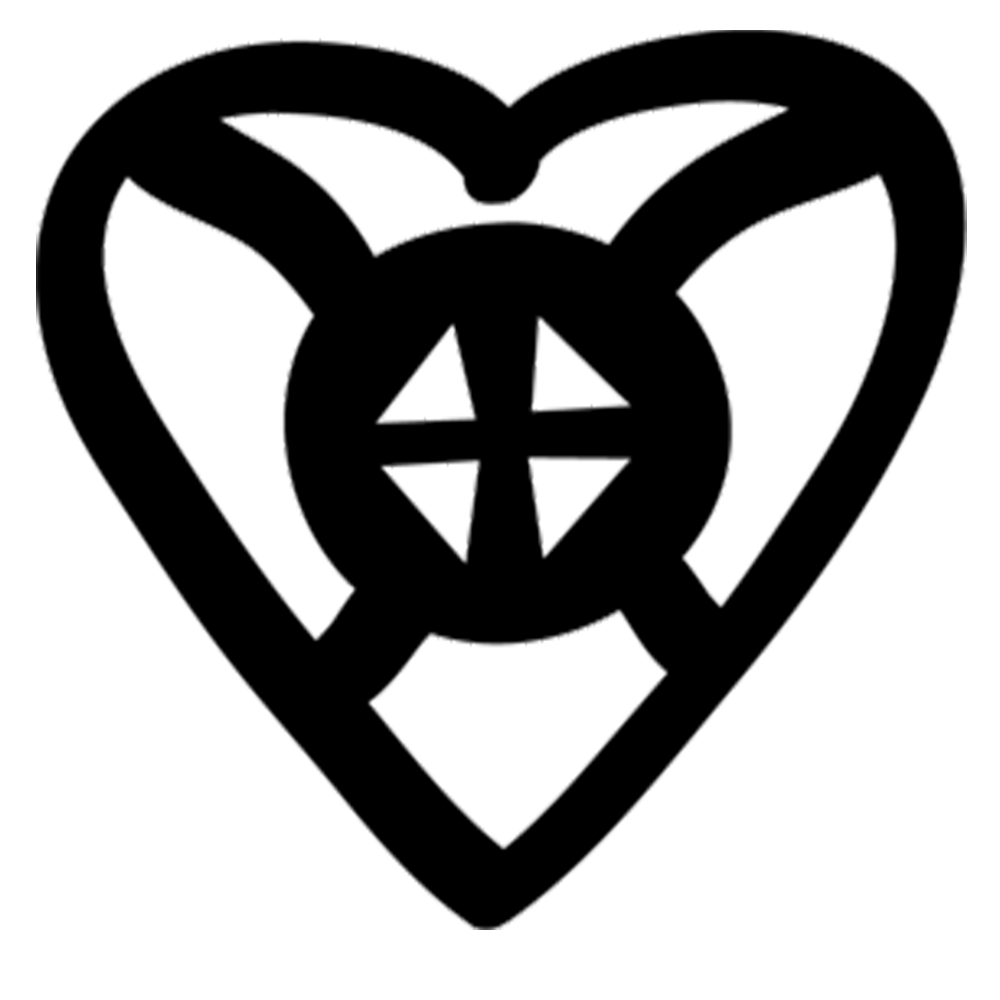Community and Cultural Norms

Introduction
There is a strong sense of community amongst African Nova Scotians. Even though each person’s lived reality is different, the story of being African Nova Scotian is collectively shared. Facing the many forms of racism is a daily reality for most African Nova Scotians. A unique culture has emerged from this shared historic and current reality. This culture includes values, norms, rules, and ways of life passed on from previous generations and how each new generation interprets and adapts these to their own lives and communities.
Even though norms influence every facet of our lives, including what we value, our attitudes, and how we behave, many people are unaware of being influenced at all. Community and cultural norms act as both protective and risk factors when it comes to sexual violence.
-

"By God's grace, all will be well"
symbol of hope, providence, faith
Source: Cloth As Metaphor by G.F. Kojo Arthur
-

"child of the heavens [stars] "
symbol of guardianship
A reminder that God watches over all people.
These norms exist within a specific historical and contemporary context of systemic racism, resistance, and survival. Some of these cultural and community norms include:
- Church and spirituality
- Welcoming hugs
- Sunday dinners
- Intergenerational trauma: Discipline and safety
- Code of silence
- Gender roles and norms
- Increased stigma of being 2SLGBTQ+

Church and Spirituality
Historically, the church has been the pillar of the community, with most African Nova Scotian communities being built around the church. It provided and continues to provide a sense of belonging and comfort to individuals during times when they were not welcomed elsewhere. The church has stepped up to provide many supports within African Nova Scotian communities when services were not available or accessible.
For newer generations, the church and religion have not been as supportive or proactive in providing support for a changing society. The church has not always been a welcoming or a safe space for survivors of sexual violence, 2SLGBTQ+ individuals, single mothers and unmarried couples, for example. The church has traditionally encouraged only married, heterosexual, two-parent households.
Spirituality today within African Nova Scotian communities has expanded from the foundation that was established by the church. Religion continues to play a role in many African Nova Scotian communities, whereas others seek spirituality outside of religion. For many, the church continues to play a vital role in their lives and community.

Reflection Activity:
How could the church better support survivors of sexual violence?

Welcoming Hugs
Within our communities, hugs have always been a form of endearment and provide a sense of community, unity and belonging. It is a global example of showing love, compassion and caring for other people. Within the African Nova Scotian communities, it re-emphasizes the sense of unity and compassion between individuals and is often used as a way to show respect to others, especially elders, similar to a handshake.
Hugs provides a sense of kinship but may also put people in an uncomfortable situation. Sometimes people agree to exchange hugs with others in fear of not wanting to be disrespectful to the other person. It is important to ensure both parties are comfortable with the situation and younger people do not feel forced into physical contact. This can help promote healthy boundaries from a young age.

Intergenerational trauma
Intergenerational trauma is caused by events that target a group of people, such as slavery. Family members who have not directly experienced the trauma can feel the effects of the event generations later. The violence experienced in many of today’s Black communities, the way children are taught to behave, the disproportionate incarceration of African Nova Scotians are all part of the effects and evolution of intergenerational trauma.
Keeping ANS children safe from the harms of systemic and everyday racism is a very real concern for ANS families. Parents of ANS children are aware of systemic barriers and what they look like in everyday life during encounters with police, justice, health care, and child welfare systems to name a few.
There are distinct historical reasons why Black communities tend to be wary of formal authorities. Today, lack of representation in public institutions means that Black people don’t see many people in positions of authority who look like them. Many African Nova Scotians do not report sexual violence or seek help because they have trouble building trust with people outside their community.
“Black people need to be nearly on their deathbed before they call a doctor. And black men, well it’s more common to call an undertaker than an ambulance. There are very few if any models and certainly no spaces for black men talking about experiences where black men can seek help.”
- Robert Wright, Social Worker

Code of Silence
A code of silence is a group mentality that forces people to keep quiet about traumatic and/or violent experiences inflicted on themselves and/or others. The code leads to fear of being ostracized within their own community for speaking out. There is also fear of attracting criticism that could reinforce negative stereotypes about African Nova Scotians.
What contributes to the code of silence in ANS communities?
- Continued and uninterrupted racism and assaults on African Nova Scotians for centuries
- Lack of support and protection from the legal and justice systems
- Silence was necessary for survival during an era when the Black community suffered horrific crimes against humanity.
“Well I think that no one outside of the community has demonstrated competence or awareness enough of what's going on with us. They haven't projected to us that they are competent to deal with us.”
- Robert Wright, Social Worker

Accountability and Safer Spaces

Reflection Activity:
- How can those who perpetuate violence be held accountable in their communities?
- How can we create safe spaces for people to disclose what has happened to them?
- How might supports and services for survivors of sexual violence be more reflective of these community and cultural norms?

Cultural Pride- Music
Music is universally powerful and unites communities in halls, places of worship, and kitchens worldwide. Through music, African Nova Scotians give expression to the many issues, events, and challenges that have impacted us over time. Music is a way to educate, tell a story, and build upon and re-create a vibrant culture.
Faith and music are intertwined. Gospel music has been a uniting force for African Nova Scotians for centuries. The ANS music scene today is a rich mix of flavours, from hip hop to reggae, gospel to classical, and so much more.
“Music in general is universal; it’s so powerful. Music empowers people by uplifting them and telling them to follow their dream, and just to do everything you feel you need to do.”
- Keonte Beals, Musician
Listen to Songs of Freedom. Superstar soprano Measha Brueggergosman explores her African heritage & the powerful music born by the hard path from slavery to freedom.
Music Songs of Freedom


